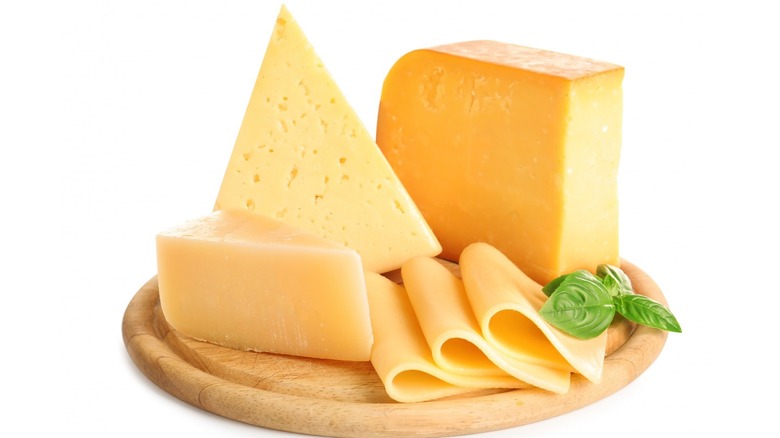The Possible Reason Humans Started Eating Cheese
The most challenging conundrum you may ever face is to try and think of something that is a better creation than cheese. If you select weekends, crime documentaries, or chocolate, you are all wrong, and if you choose milk, well, you're just cheating.
In many ways, cheese is like a dog — it's absolutely delightful and completely addictive, while at the same time being a rather expensive habit that takes up a vastly unnecessary amount of time. In fact, CNBC reports that the natural cheese market in the U.S. is worth a very mature $18 billion, and that Americans consume 38 pounds of cheese a year on average.
Although the popularity of cheese is extremely clear, how did the fascination with the golden dairy creation arise? Mental Floss reports on the work of food researchers who have discovered evidence of cheese production from 7,500 years ago. This offers suggestions as to why cheese has always been an insatiable fixation.
Cheese may have helped early humans enrich their diet
Examining ancient relics from the Kuyavia region of Poland, Mental Floss noted that researchers at the University of Bristol in the U.K. found traces of milk residue lurking in the cracks of pottery from over 7,000 years ago, suggesting that cheese production had taken place. While today cheese is often seen as a fatty treat to be eaten in moderation, thousands of years ago it was an essential part of a person's daily diet.
The report also suggested that cheese was highly useful as a source of protein and was much easier to digest than milk. This is because early humans are likely to have been lactose intolerant, meaning drinking milk could have caused unpleasant health effects. Because of this, cheese was easier for them to digest, as the lactose was removed. Additionally, eating cheese was far more convenient than killing animals.
The Spruce Eats detailed how cheese is first believed to have been discovered in 8000 B.C., being produced in the stomachs of animals. The article also notes how Romans would use cheese to feed their legions, demonstrating the vital significance cheese has had in the lives of humans for millennia.

